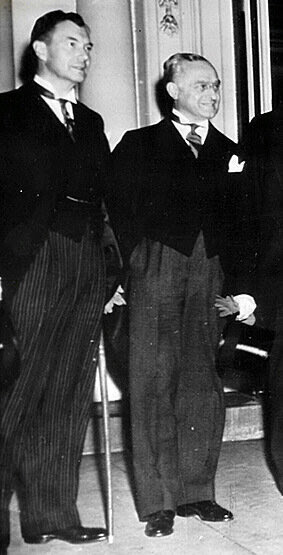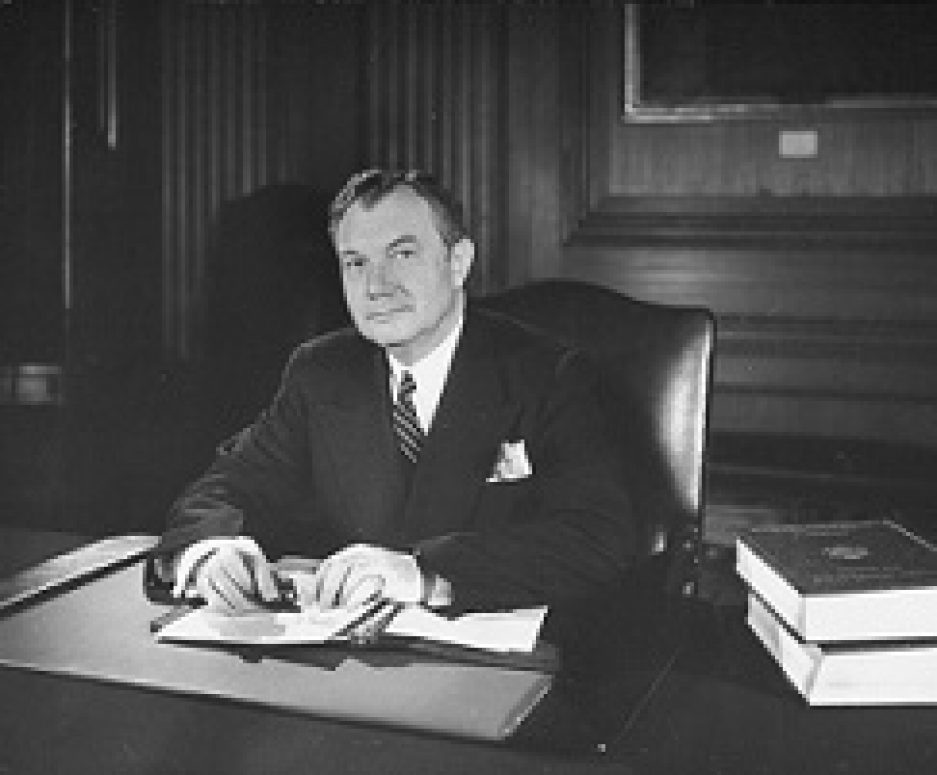In 1935, Robert H. Jackson, a senior lawyer in the U.S. Treasury Department, met Felix Frankfurter, a Harvard University law professor. They worked together, in Washington and remotely, on New Deal legislation and other projects, and they became friends.
In late 1938 and during the first weeks of 1939, then-U.S. Solicitor General Jackson urged President Franklin D. Roosevelt, successfully, to nominate Frankfurter to serve on the U.S. Supreme Court.

In summer 1941, Jackson joined Justice Frankfurter on the Court. They were Supreme Court colleagues for all of Justice Jackson’s thirteen years of service.
On the Court, Justice Frankfurter and Justice Jackson sometimes disagreed about legal issues and cases. But they generally were like-minded. They shared a strong belief in democracy—in the U.S. political process—and, related to that, they had doubts that judges properly should, at least often, interpret the U.S. Constitution as requiring fundamental rights or policies not recognized by the elected branches of government.
* * *
The topic of judicial restraint is both historical and contemporary. Accordingly, the Historical Society of the New York Courts last week hosted a program on “Justice Felix Frankfurter and the Idea of Judicial Self-Restraint: Then and Now in Federal and State Courts.”
This program occurred in the Great Hall at the New York City Bar Association, on a dais from which Frankfurter and Jackson each spoke.
The program participants:
- Professor Brad Snyder of Georgetown University Law Center, author of the biography Democratic Justice: Felix Frankfurter, the Supreme Court, and the Making of the Liberal Establishment (W.W. Norton, 2022);
- The Honorable Jonathan Lippman, former Chief Judge of the New York Court of Appeals and of the State of New York, now in private practice at Latham & Watkins;
- The Honorable Barbara N. Underwood, Solicitor General of New York State and former Acting Solicitor General of the United States;
- Dean Troy A. McKenzie of New York University School of Law;
- Henry M. Greenberg, former president of the New York State Bar Association, in private practice at Greenberg Traurig; and
- myself.
To watch video of this program, which begins with Professor Snyder lecturing about Frankfurter and then is an active panel discussion of judicial restraint, click here:
